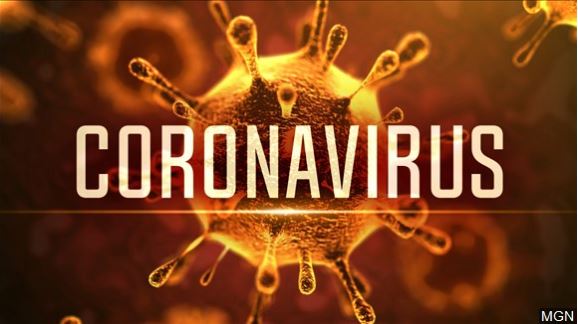As the second wave of COVID-19 surges in Pakistan, NCOC issued SOPs to cope with the lethality of the outbreak and directed masses to use face masks as a must. The World Health Organization (WHO) and the US Centres for Disease Control and Prevention (CDC) also included face masks in their recommendations for slowing the spread of the coronavirus, the CDC recommended cloth face masks for the public and not the surgical and N95 masks needed by healthcare providers.
Director Ayub Teaching Hospital (ATH) Abbottabad Dr Ahsan Aurangzeb told APP that experts gave a name to the virus as “Novel” Coronavirus (nCoV), which was a new strain that has not been previously identified in humans”.
He further said that the use of a face mask was one of the precautionary measures, which could save up to 95 percent of people from coronavirus, in Turkey all businesses were opened but face mask was mandatory for all which has protected them from the pandemic, he said. Clustering is a major cause of increasing coronavirus in the winter when many people of a home or offices or elsewhere gathered around the heater or in a room infect each other rapidly, Dr. Ahsan Aurangzeb said. Masks should be used as part of a comprehensive strategy of measures to suppress transmission and save lives.
How many people of Pakistan are following the directives issued by the government of Pakistan to protect themselves and their loved once by wearing a face mask while going outside the homes, APP Abbottabad conducted a survey of Abbottabad and Haripur districts to gather information that how many people were using a face mask in the wake of COVID-19.The data gathered from 200 vehicles of local public transport, 200 personal cars, 300 motorcyclists, 500 pedestrians, district courts of Abbottabad and Haripur, major shopping malls, grocery stores and some government offices showed that overall 45 percent people were using face masks in both the districts.
The statistical analysis of the data gathered from both districts showed that 70 percent of the legal fraternity and their litigants were using face masks while in district courts nobody can enter without a mask.40 percent people while traveling in local public transport were wearing face masks where only 10 percent of drivers found using the masks. 40 percent of motorcyclists were using face masks while 25 percent of the people using personal vehicles were found with face masks.
The lowest ratio of using face masks was found in pedestrians where 500 people were observed in both districts and the ratio was 10 percent.
The other lowest face masks wearing segment of society was proprietors and the salesmen of the grocery stores and other shops and their ratio of wearing face masks also remained below 10 percent, interestingly in the major superstores of both districts all staff was using face masks, which was also encouraging for the visitors. In some government departments including AC, DC offices, District Courts and police stations entry of people without masks was totally banned, in some government offices face masks are not mandatory where most of the employees and visitors were seen without face masks.
When we asked different people about the use of mask their response was quite interesting, a pedestrian replied that I don’t believe in COVID-19 outbreak, it’s not a serious disease, another replied that what happened in the mass rallies of political parties where thousands of people were gathered without any precaution and they all were okay.
A local commuter while replying to the question on the use of face masks said that in the public transport they had very little space and there was a dire need of using face masks other than the threat of COVID-19 as even one could feel the breathing of the passenger sitting beside. 30 percent of people in both Abbottabad and Haripur districts still don’t believe in the coronavirus pandemic and they ruled out the use of face masks as a precautionary measure.
Interestingly, the people who themselves or any of their relatives suffered from the coronavirus were convinced to use the face mask and they were also trying to encourage others to use the face mask for their own safety.
Besides governmental policy on the outbreak of the COVID-19 in Pakistan and its strict enforcement was largely admired by the world. After June, for the first time in Pakistan the number of COVID-19 positive cases increased drastically with more than 2000 cases on a daily basis.
During the first wave of the outbreak, the government of Pakistan under the leadership of PM Imran Khan successfully tackled the threat of COVID-19. PM Imran Khan took bold decisions for opening businesses and industry.
Now it was up to the masses to revise their strategy about coronavirus and strictly follow the SOPs particularly the use of face masks for their own safety.
According to the WHO instructions for the general public, masks were a key measure to suppress transmission and save lives, it also reduces potential exposure risk from an infected person whether they have symptoms or not. People wearing masks are protected from getting infected.
Masks also prevent onward transmission when worn by a person who is infected.
Masks should be used as part of a comprehensive ‘Do it all!’ approach including physical distancing, avoiding crowded, closed and close-contact settings, improving ventilation, cleaning hands, covering sneezes and coughs etc.
The WHO has clearly mentioned in its recommendations that within wider environments where the virus was spreading, masks should be worn by the general public in settings where it was not possible to maintain at least one meter distance from others.
Examples of these settings include indoor locations which are crowded and have poor ventilation, public transport and places of high population density among others.
Follow the PNI Facebook page for the latest news and updates.









